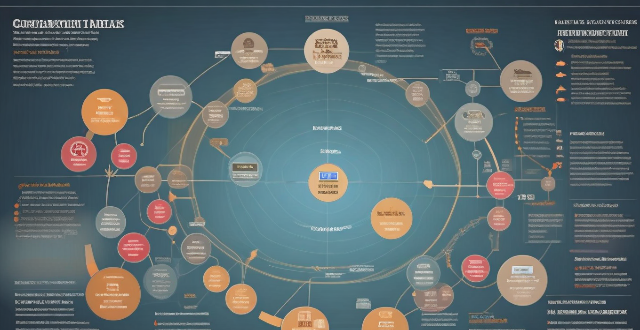Regulations significantly influence the growth of the commercial space industry by providing a framework for innovation, ensuring safety and security, promoting competition, addressing environmental concerns, and adapting to rapid changes. Effective regulations can facilitate industry growth by reducing uncertainty and lowering barriers to entry, while also protecting public interest through strict safety standards and sustainable practices.

Regulations and their Impact on the Growth of Commercial Space Industry
Introduction
The commercial space industry is a rapidly growing sector that involves the development and operation of space-related technologies and services for profit. This industry includes companies involved in satellite communications, Earth observation, space transportation, and space tourism. The growth of the commercial space industry is influenced by various factors, including technological advancements, market demand, and government regulations. In this article, we will explore how regulations affect the growth of the commercial space industry.
Regulatory Environment
The regulatory environment for the commercial space industry varies across countries and regions. However, most governments have established agencies responsible for overseeing space activities within their jurisdictions. These agencies are tasked with ensuring safety, security, and compliance with international treaties and agreements. Some of the key regulatory bodies include:
- Federal Aviation Administration (FAA): The FAA is the primary regulator of commercial space activities in the United States. It is responsible for licensing launch vehicles, launch sites, and reentry vehicles, as well as monitoring compliance with safety and environmental regulations.
- European Space Agency (ESA): The ESA is an intergovernmental organization that promotes cooperation among European nations in space research and exploration. It also provides guidance on regulatory issues related to commercial space activities.
- Indian Space Research Organisation (ISRO): ISRO is the national space agency of India, responsible for regulating commercial space activities within the country. It issues licenses for launch vehicle operations and satellite deployment.
Impact of Regulations on Industry Growth
Regulations play a crucial role in shaping the growth of the commercial space industry. They can either facilitate or hinder the development of new technologies and business models. Here are some ways in which regulations affect the industry's growth:
Facilitating Innovation
Effective regulations can encourage innovation by providing a clear framework for companies to operate within. This can help reduce uncertainty and lower barriers to entry, allowing new players to enter the market. For example, the FAA's Office of Commercial Space Transportation has implemented a streamlined licensing process for small satellite launches, making it easier for startups to access space.
Ensuring Safety and Security
Safety and security are paramount concerns in the commercial space industry. Regulations ensure that companies adhere to strict safety standards, reducing the risk of accidents that could harm people or damage property. Additionally, regulations help prevent the misuse of space technologies for malicious purposes, such as weapons development or espionage.
Promoting Competition
Regulations can foster competition by creating a level playing field for all participants. By establishing fair rules and standards, regulators can prevent dominant players from monopolizing the market and stifling innovation. This can lead to increased competition, lower prices, and improved services for consumers.
Addressing Environmental Concerns
The commercial space industry has potential environmental impacts, such as space debris and atmospheric pollution. Regulations can help mitigate these effects by requiring companies to implement sustainable practices and develop clean technologies. This not only benefits the environment but also enhances the industry's reputation and long-term viability.
Adapting to Rapid Changes
The commercial space industry is undergoing rapid changes due to technological advancements and changing market demands. Regulations must be flexible enough to adapt to these changes without stifling innovation or hindering growth. This requires regulators to work closely with industry stakeholders to identify emerging trends and update regulations accordingly.
Conclusion
Regulations play a critical role in shaping the growth of the commercial space industry. While they can sometimes be seen as obstacles to innovation, effective regulations can actually facilitate growth by providing a clear framework for companies to operate within, ensuring safety and security, promoting competition, addressing environmental concerns, and adapting to rapid changes. As the industry continues to evolve, it will be essential for regulators to strike a balance between promoting innovation and protecting public interest.